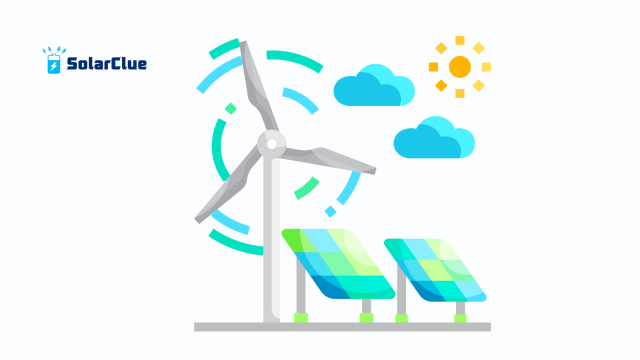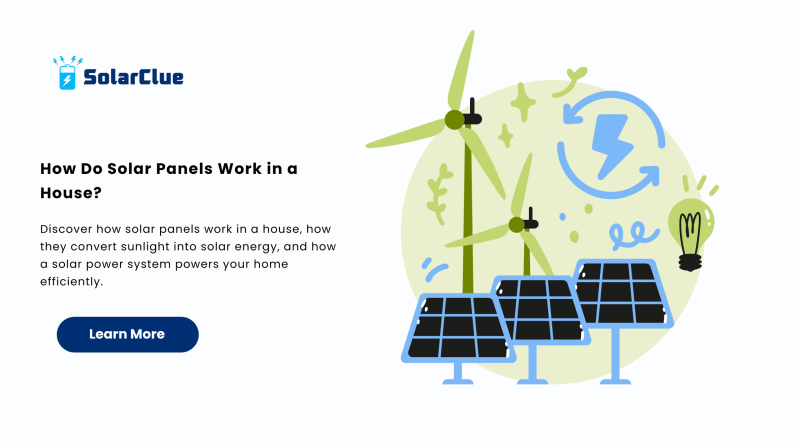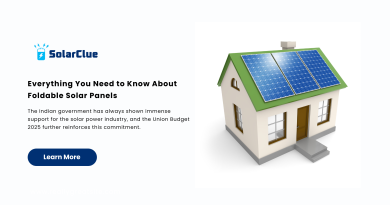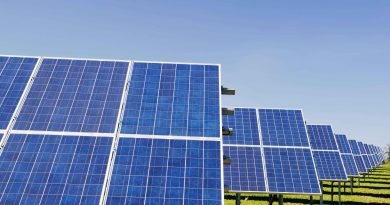How Do Solar Panels Work in a House?
Have you ever looked at the roof of a house with shiny panels and wondered, how do solar panels work in a house? You’re not alone. As more people become environmentally conscious and seek ways to save on electricity bills, understanding the science and system behind solar energy has become more important than ever.
Table of Contents
- 1 What Are Solar Panels and How Do They Function?
- 2 Key Components of a Home Solar System
- 3 How Does Solar Energy Power Your Home?
- 4 What Happens When the Sun Isn’t Shining?
- 5 Understanding Solar Panel Efficiency
- 6 Factors Affecting Solar Panel Efficiency
- 7 How Much Does a Solar Panel System Cost?
- 8 Benefits of Installing Solar Panels at Home
- 9 Choosing the Best Solar Panel for Your Home
- 10 Installation Process: What to Expect
- 11 Maintenance Tips to Improve Lifespan
- 12 Net Metering and Government Incentives
- 13 Environmental Impact of Solar Energy
- 14 Can I Go Completely Off-Grid with Solar Panels?
- 15 Is Solar Worth It in the Long Run?
- 16 Conclusion
- 17 FAQs
What Are Solar Panels and How Do They Function?
Solar panels are devices that convert sunlight into electricity using photovoltaic (PV) cells. When sunlight hits these cells, it creates an electric current. This process, known as the photovoltaic effect, is the foundation of all solar power systems.
Key Components of a Home Solar System
A typical solar power system for a home includes:
- Solar panels (photovoltaic modules)
- Inverter (converts DC to AC)
- Mounting system
- Battery storage (optional)
- Net meter
Each component plays a critical role in making solar energy usable inside your home.
How Does Solar Energy Power Your Home?
Once the solar panel for home captures sunlight, it generates DC (direct current) electricity. Since most household appliances run on AC (alternating current), the inverter converts DC into AC. This AC power then flows into your home’s main electrical panel, powering your lights, appliances, and gadgets.
What Happens When the Sun Isn’t Shining?
Good question! At night or on cloudy days, your home can draw electricity from the grid or from battery storage if your system includes one. Thanks to net metering, excess energy produced during sunny periods is sent back to the grid, and you get credited for it, helping reduce your utility bill.
Understanding Solar Panel Efficiency
Solar panel efficiency measures how much sunlight the panel can convert into usable electricity. Higher efficiency means more power output from the same amount of sunlight. Today’s best solar panel options can reach efficiency levels above 22%, meaning less space is needed for installation.
Factors Affecting Solar Panel Efficiency
Several elements influence solar panel efficiency:
- Quality and type of photovoltaic cells
- Angle and orientation of the panels
- Amount of shading
- Temperature and climate
- Maintenance and cleanliness
Choosing the best solar panel ensures better performance and long-term energy savings.
How Much Does a Solar Panel System Cost?

The solar panel price varies depending on size, type, and installation complexity. On average, a complete solar power system for a medium-sized house can range between ₹1,50,000 to ₹5,00,000 in India, but with government subsidies and tax benefits, the cost becomes much more affordable.
Benefits of Installing Solar Panels at Home
There are numerous benefits to installing a solar panel for home, such as:
- Significant reduction in electricity bills
- Lower carbon footprint
- Increase in property value
- Energy independence
- Government subsidies and tax incentives
Choosing the Best Solar Panel for Your Home
With so many options available, picking the best solar panel for your needs is crucial. Look for trusted brands, good efficiency ratings, long warranties, and proper certifications like MNRE approval in India.
Installation Process: What to Expect
The installation process involves:
- Site assessment
- System design
- Permits and documentation
- Installation and wiring
- Testing and commissioning
It’s always best to work with licensed professionals to ensure the safety and effectiveness of your system.
Maintenance Tips to Improve Lifespan
Maintaining your solar panel system is relatively easy. Clean them every few months to remove dust and debris. Schedule annual inspections to ensure optimal performance and extend the panel lifespan.
Net Metering and Government Incentives
Net metering allows homeowners to feed excess power back into the grid and receive credits. Various state governments in India offer incentives like capital subsidies and GST exemptions to make solar energy adoption easier.
Environmental Impact of Solar Energy
Switching to solar energy reduces reliance on fossil fuels, lowers greenhouse gas emissions, and contributes to a cleaner, greener planet.
Can I Go Completely Off-Grid with Solar Panels?
Yes, but you’ll need a robust battery storage system to ensure continuous power supply during nights and cloudy days. Off-grid systems are ideal for remote locations but can be costlier upfront.
Is Solar Worth It in the Long Run?
Absolutely. Though the initial investment might seem high, the long-term savings, government support, and environmental benefits make solar panel for home a smart and sustainable choice.
To get more information and explore your options, visit SolarClue.com and dive into expert insights at blog.solarclue.com.
Conclusion
So, how do solar panels work in a house? It’s a synergy of science, smart technology, and sustainable thinking. By harnessing the power of the sun, you’re not only saving money but also making a meaningful contribution to the planet. Ready to make the switch?
Explore your solar future today — head to SolarClue.com for reliable solutions and expert guidance!
FAQs
1. How much electricity can a solar panel generate per day?
A 1kW solar panel system can generate 4 to 5 units per day under ideal conditions.
2. What is the lifespan of a solar panel?
Most solar panels last between 25 to 30 years with minimal maintenance.
3. Can I install solar panels on any roof?
Most roofs are suitable, but a professional assessment ensures optimal orientation and support.
4. What happens to unused solar power?
Through net metering, excess power is sent back to the grid, and you get credit for it.
5. Is it necessary to have batteries with a home solar system?
Batteries are optional but useful for off-grid systems or during power outages.




